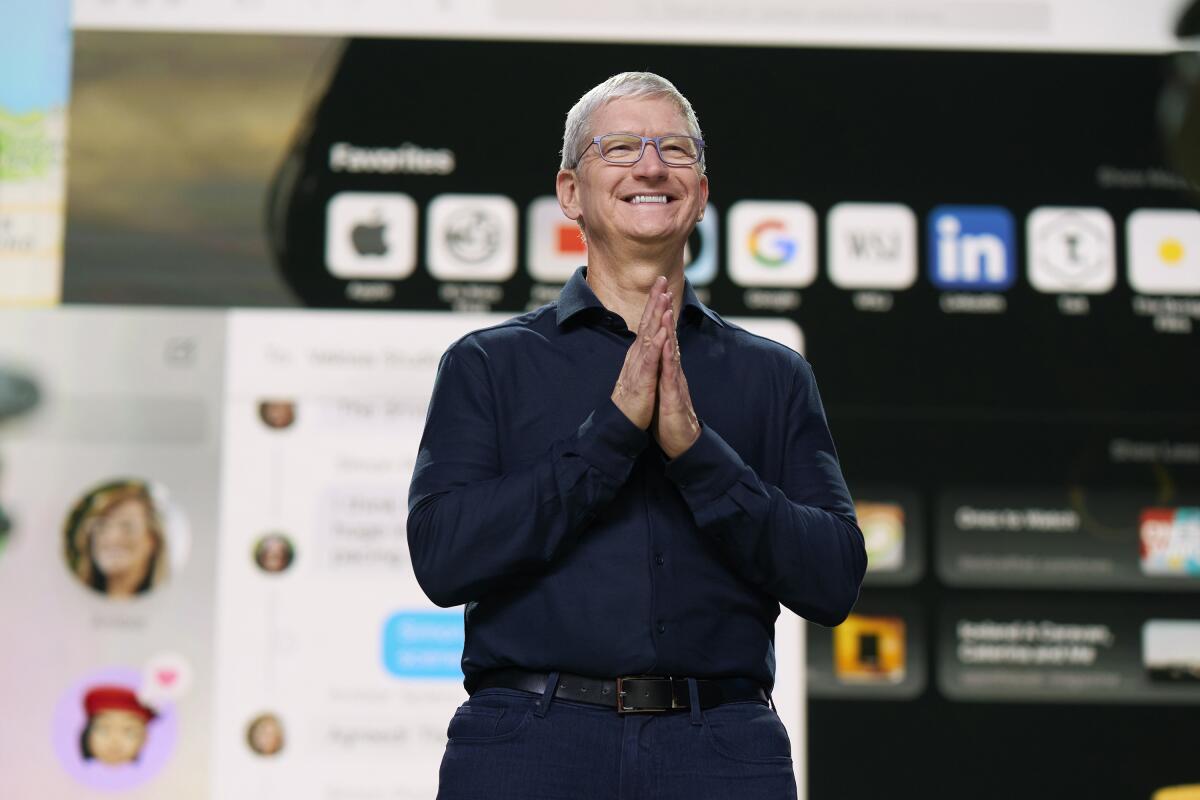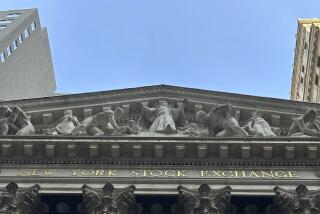Apple’s market cap briefly tops $3 trillion after relentless rally

Apple Inc.’s stock market value briefly rose above $3 trillion on Monday, shattering yet another record and underscoring how the pandemic has turbocharged Big Tech’s decades-long rise.
The company was the first to achieve the milestone, although it failed to hold above the level through the end of the trading day. It closed 2.5% higher at $182.01 and with a market capitalization of $2.99 trillion. The advance came on a broadly positive session for stocks, where Apple and Amazon.com Inc. both contributed to the Nasdaq 100 Index outperforming.
The iPhone maker’s share price has climbed steadily for years, leaving it up more than 200% since COVID-19 first sent the world into lockdown in early 2020 and underlined the centrality of technology for work, education, entertainment and keeping connected.
Apple’s rally has come alongside steady revenue growth and bets that key products, along with new offerings such as virtual reality headsets and autonomous electric vehicles, have a strong long-term outlook.
“I never thought I’d see a $3-trillion market cap, but it really speaks to Apple’s prospects over the next five to 10 years,” said Patrick Burton, co-portfolio manager of the MainStay Winslow Large Cap Growth Fund, which holds about 2.75 million Apple shares. “We feel very good about the outlook, and continue to see meaningful opportunities ahead, with a stable iPhone franchise and growth drivers from both services and new products.”
‘Winnie-the-Pooh,’ ‘The Sun Also Rises’ and many other works entered the public domain on Saturday. They show what’s wrong with the system.
The stock first reached $1 trillion in value in mid-2018, and achieved a $2 trillion valuation in August 2020. Though it was the first U.S. company to surpass that level, Saudi Aramco was the first $2-trillion company overall. Apple’s size means it has a pronounced influence on the overall equity market; its weight within the Standard & Poor’s 500 Index is about 7%.
Ever since it first became the world’s most valuable stock in 2011 — when its market cap was under $340 billion and it comprised about 3.3% of the S&P 500 — Apple has rarely been far from the title.
It briefly fell behind Microsoft Corp. in October, after warning about the impact supply chain issues would have on its holiday quarter, though that second-place status was short-lived. Over the last month, the stock has risen more than 12%, compared with a 3.6% rise in Microsoft, which now has a valuation above $2.51 trillion.
Despite the optimistic outlook, there are risks to Apple’s forward march.
The company is facing the toughest regulatory atmosphere in its history, with governments bearing down in the U.S. and India over its App Store practices and dealings with third-party developers. Any laws affecting Apple’s practices could limit its income from services, now one of the company’s most important segments.
From a product perspective, Apple is also hitting snags and contending with new rivals. The company’s upcoming virtual and augmented reality headsets will vie with gear from Meta Platforms Inc., formerly Facebook. Its long-in-development car project has also hit roadblocks with ever-changing goals and key departures.
Apple’s advance also has the stock trading at a premium to its average historical multiple, according to data compiled by Bloomberg. The stock is 4.5% above the average analyst price target, suggesting that while nearly 80% of firms recommend buying it, most view it as fairly valued.
“It isn’t particularly cheap right now, so I wouldn’t back up the truck to buy, but it deserves to be somewhat expensive,” said Rhys Williams, chief strategist at Spouting Rock Asset Management. “So long as the iPhone cycle is intact, it is unlikely to significantly underperform the market, and if it does come out with an electric vehicle, then the stock would look cheap because that’s a huge potential market.”
Bloomberg writer Mark Gurman contributed to this report.
More to Read
Inside the business of entertainment
The Wide Shot brings you news, analysis and insights on everything from streaming wars to production — and what it all means for the future.
You may occasionally receive promotional content from the Los Angeles Times.











